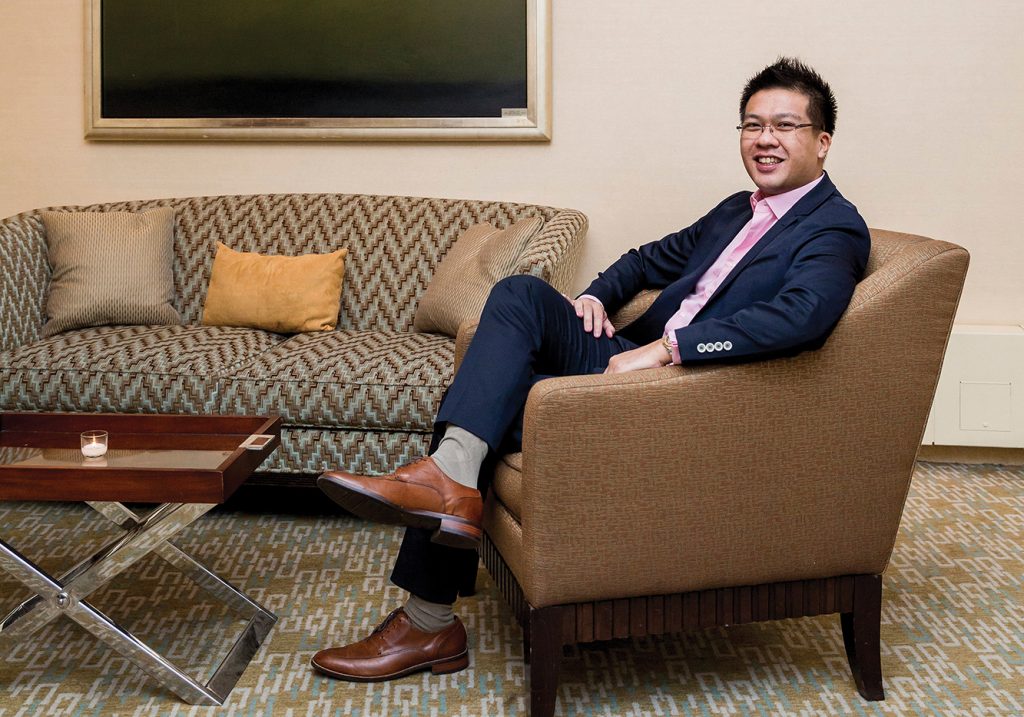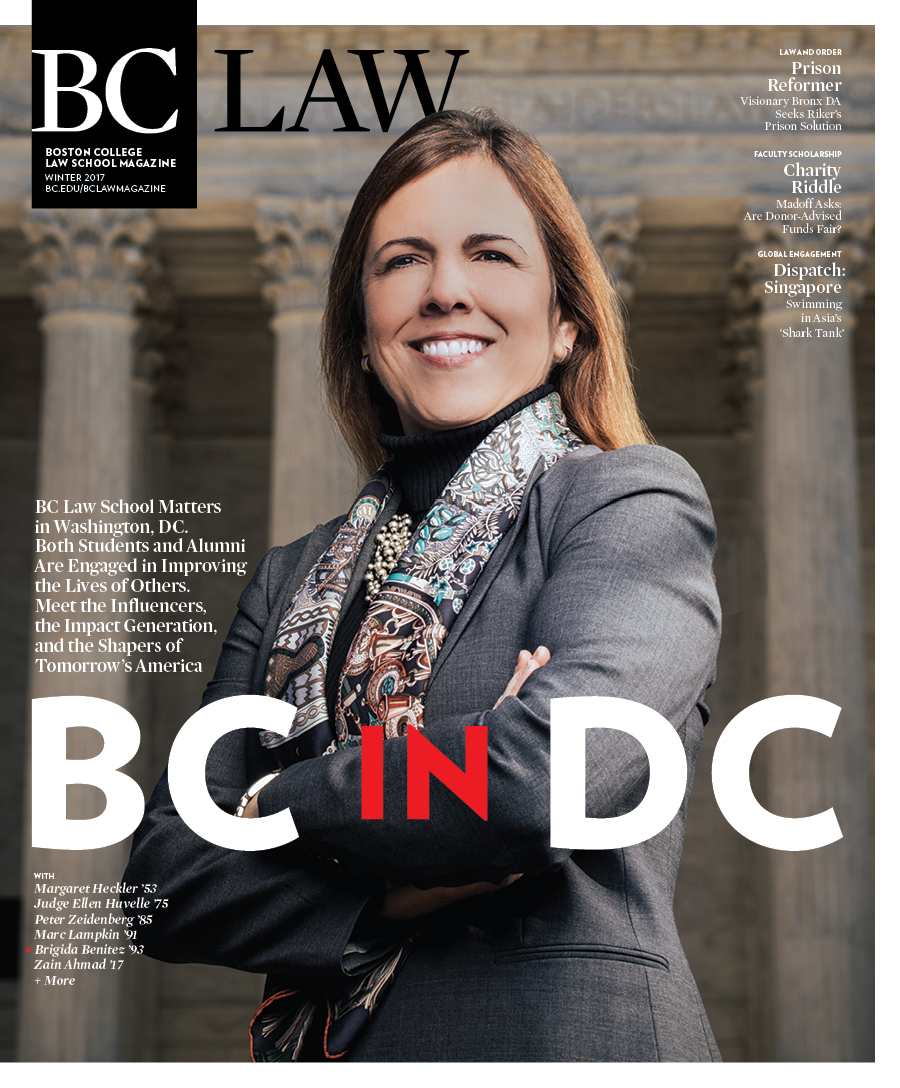While it is true that BC Law can take you anywhere, few young alumni quite embody that notion like James Bitanga ’06. Sure, he seemed right at home back in Newton for reunion festivities this fall. But Bitanga, a Canadian citizen with Filipino heritage, stretches the idea of a global legal career about as far as you can, literally 9,400 miles from Boston in Singapore, just under the maximum range for an Airbus A380, or about 38 percent of the way around the world.
In other ways, however, Bitanga’s path is a traditional one—a mix of hard work and fortuitous timing. When he was last featured in these pages, the BC Law alum was in the midst of a clerkship with the Supreme Court of the Philippines in Manila, after doing litigation work for a few years. But by 2010, like many young lawyers, he was angling for a change and willing to take a chance. “I was introduced through a friend to a lawyer with IBM in Singapore,” he says, “and twenty-four hours later, I had a new job and a new city. The global market was still recovering then, so to have the opportunity to retool with transactional work, in-house, and in a new jurisdiction? It was like finding a treasure chest.”
“In Asia, the sources of venture capital are still old money—families with wealth built on palm oil or shipping—so to navigate the expectations of that ecosystem is very different.” —James Bitanga
Thrown trial-by-fire into a world of negotiating technology agreements and tenders for large government projects, Bitanga quickly came to appreciate the competitive subculture of tech deal-making in Asia, working on projects like transportation arrival predictability in the city-state, or shared enterprise capabilities in different ministries. “In typical M&A deals, transactions can happen very quickly and you might even see term sheets being developed and turned around overnight,” he explains. “Whereas in tech deals of the kind I worked on, negotiations can last twelve months; you get beat up and there’s a lot at stake. You’re really up front.”
Eventually, the grinding nature of a 5,000-person office conflicted with another personal priority. “I wanted a career where I could still work on the investing side, but also do yoga every morning,” Bitanga admits. After a few years doing in-sourced consulting engagements with enterprise clients like HP and Accenture for Axiom, and some angel investing on the side, he found a co-investment opportunity in his LinkedIn inbox. “I never even check those, usually,” he says. But this one—from Reapra Pte. Limited —turned out to be different. “We met, and it quickly turned into a job interview: an opportunity to be chief legal officer and board member.”
The firm’s novel “venture building” model, which goes after underserved markets in Southeastern Asia, takes a more active hand in building out their invested businesses with more skin in the game than simply distributing venture capital. Consequently, Reapra’s portfolio contains a wide array of companies, from private aviation to a ryokan-style hostel chain to an organic farm in Thailand. But the subtleties of being chief legal officer—general counsel to the firm and simultaneously advising the portfolio companies—attracted Bitanga as well.
“In Asia, the sources of venture capital are still old money—families with wealth built on palm oil or shipping—so to navigate the expectations of that ecosystem is very different,” he explains. “The region also doesn’t have the same rich history of compliance development as North America and at times it can feature commercial idiosyncrasies: In some countries, like Thailand, the military is still ruling; Vietnam hasn’t left those roots either; Myanmar, meanwhile, is pivoting. So one of the challenges for me as CLO is constantly looking at those aspects—putting up a business, dealing with suppliers or customers, compliance and data privacy laws. Most importantly, these countries are incredibly fragmented. That is what outsiders trying to enter and invest in this region misunderstand. It’s not homogenous at all.”
Indeed, it’s a role that plays perfectly to the skills and patience that got Bitanga from a firm to clerkship to IBM to venture capital, from Boston to Manila to Singapore—all with an open mind. “The upside for me was always our model at Reapra, how it’s different, how that meshes between our startup projects,” he says. “It’s like ‘Shark Tank,’ twenty-four hours a day, seven days a week.”



